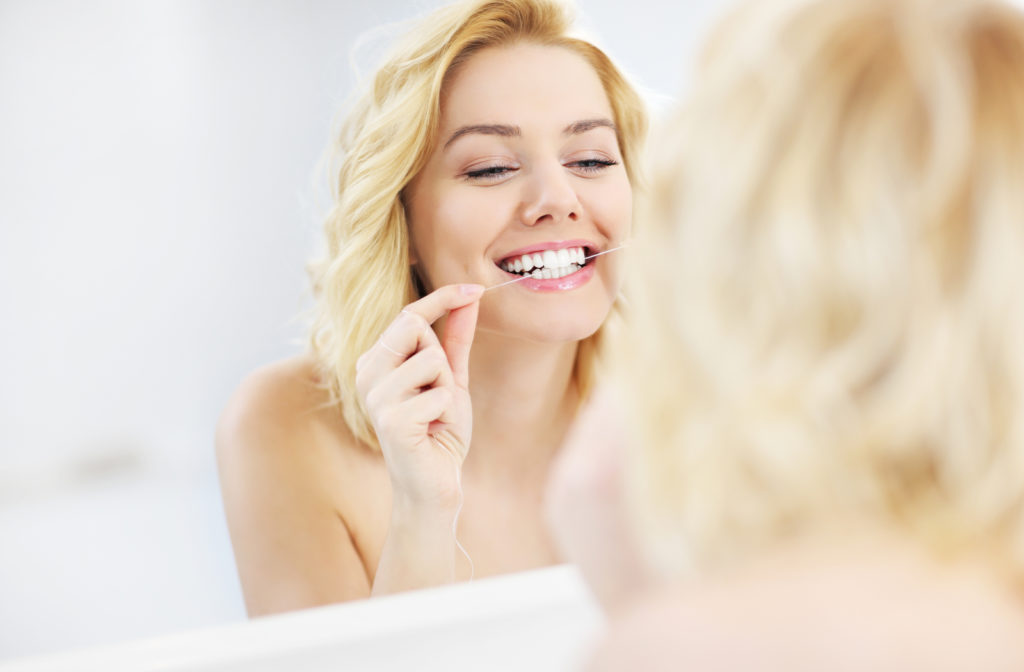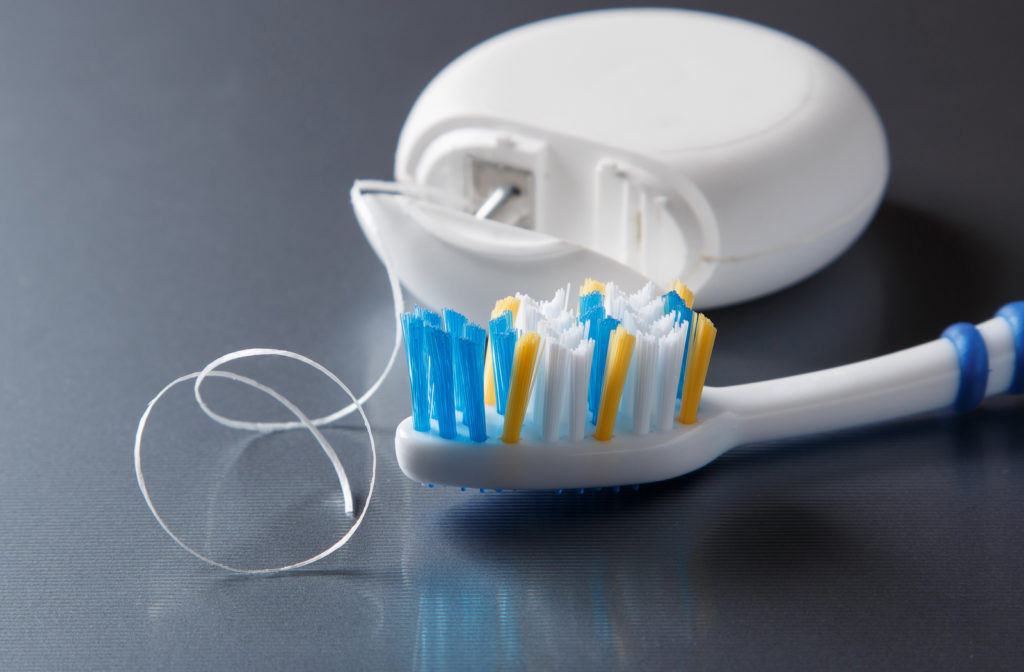Taking care of your teeth can avoid an unnecessary trip to your dentist’s office, helping prevent cavities and other potential problems. Cleaning your teeth twice a day, including flossing, is necessary for promoting good oral health. When you clean your teeth, should you floss or brush first?
Continue reading to learn more about dental hygiene, including why it’s important and if you should floss or brush your teeth first.
The Importance of Your Oral Health
Your oral health is a vital part of your overall well-being. Without taking proper care of your mouth, teeth, and gums, you increase the risk of tooth decay and gum disease. Between 15–20% of adults ages 35 to 44 have severe gum disease.
Bacteria in your mouth is normal, but your body’s natural defences and good oral hygiene are typically enough to prevent significant issues. Ineffective brushing and flossing can lead to oral infections only your dentist can treat.
You should visit your dentist as soon as possible if you ever experience:
- Ulcers, sores, or tender areas in the mouth that won’t heal
- Bloody or swollen gums after brushing or flossing
- Chronic bad breath
- Pain or toothache
- Loose teeth
- Receding gums
- Pain when chewing or biting
- Swollen face or cheeks
- Jaw clicking
- Cracked or broken teeth
- Frequent dry mouth
Many of these issues are less likely to occur when you take care of your teeth and mouth. Your oral health is a lifetime investment, and learning how to brush and floss effectively can help prevent future complications. When beginning your teeth cleaning routine, should you floss or brush first?
What Comes First, Flossing or Brushing?
You may think there is no order for brushing and flossing your teeth, but flossing before brushing can help remove bacteria more effectively.
Flossing helps remove the plaque and food stuck between your teeth that your toothbrush can’t reach. Regular flossing is essential for protecting your oral health. However, removing plaque, bacteria, and food after brushing your teeth leaves these particles behind until the next time you clean.
When you brush your teeth after flossing, the brushing helps remove these released particles. There is less plaque in the mouth, lowering your risk of gum disease. Another benefit found in a 2018 study is that the fluoride in your toothpaste can better protect your teeth when particles are first removed by flossing.
Now that you know the best order to clean your teeth, how can you effectively floss and brush to promote healthy teeth and gums?

Taking Care of Your Teeth
Daily cleaning is vital for protecting your teeth. According to the Canadian Dental Association, plaque hardens into tartar within 24–36 hours. Tartar is only removable with help from your dentist, so timely cleaning is the most effective way to avoid future issues.
You can floss your teeth in the best way possible by following these steps:
- Take a length of floss equal to the distance from your hand to your shoulder & wrap it around your index & middle fingers, leaving around 2 inches of space
- Slide the floss between your teeth & wrap it into a “C” shape around the base of the tooth & gently under the gumline
- Floss the tooth from base to tip 2 or 3 times
- Floss both sides of every tooth, including the back molars
- Roll the floss string into a ball after finishing & throw it in the garbage
Don’t Forget to Brush Effectively
After you finish flossing, it’s time to brush your teeth. Ideally, you should brush your teeth after every meal, but you should aim to clean your teeth twice a day. Brushing your teeth before you go to sleep is essential.
Brushing your teeth isn’t complicated, but there is a correct way to do it. Following these steps can help you remove as much bacteria from your mouth as possible:
- Brush at a 45-degree angle to your teeth, directing the bristles to where your gums & teeth meet
- Use a gentle, circular, up & down motion to clean the teeth on all chewing surfaces
- Brush your teeth for at least 2–3 minutes, changing your brushing pattern to avoid missing areas of bacteria
Use a soft brush with rounded bristles when cleaning your teeth. Additionally, you need a toothbrush that can reach the back of your mouth. If you’re struggling to find the right toothbrush, your dentist can offer recommendations.
Besides daily flossing and brushing, regular dental appointments are essential for promoting good oral health. Preventative care can help you avoid a potential filling or other procedure.
Remember to Visit Your Dentist Regularly
Your dentist can identify and treat any problems before they cause further damage with regular dental visits. Another benefit of these visits is that you receive a more thorough cleaning than you can complete at home.
Don’t forget to book an appointment to help protect your oral health. Contact your dentist for a dental exam and cleaning.


